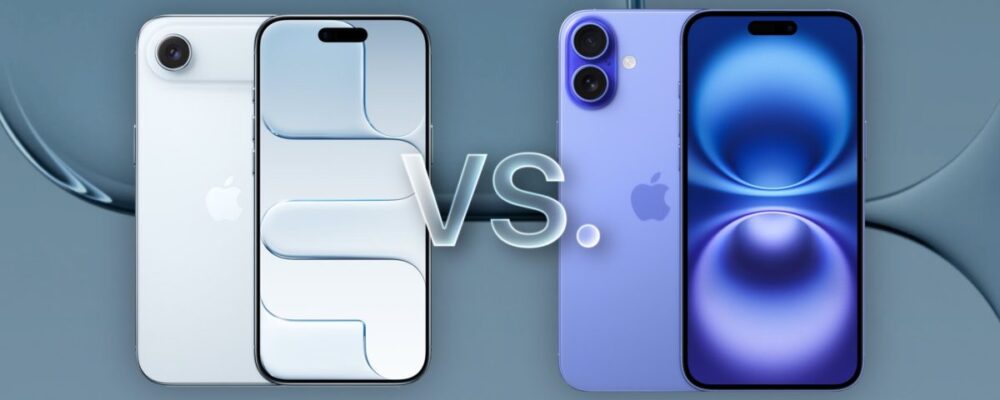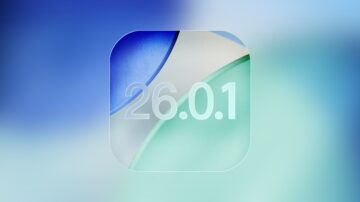Apple has introduced the iPhone Air as part of its iPhone 17 lineup, discontinuing the Plus model. This article compares the iPhone Air with the iPhone 16 Plus.
The iPhone Air features a design that is significantly thinner and lighter than the iPhone 16 Plus. Specifically, it measures 5.64 mm thick compared to 7.80 mm, and weighs 165 g (5.82 oz), down from 199 g (7.03 oz).
In terms of dimensions, the iPhone Air is shorter and narrower, standing at 6.15 in (156.2 mm) tall and 2.94 in (74.7 mm) wide, compared to the iPhone 16 Plus which is 6.33 in (160.9 mm) tall and 3.06 in (77.8 mm) wide. The camera plateau on the back is now full-width but shorter than that of the iPhone 16 Plus.
The iPhone Air also introduces a new palette of colors, featuring Sky Blue, Light Gold, Cloud White, and Space Black, while the iPhone 16 Plus came in Ultramarine, Teal, Pink, White, and Black.
Both models feature Super Retina XDR Display, but the iPhone Air includes ProMotion technology. This allows for an adaptive refresh rate ranging from 1Hz to 120Hz, improving display smoothness and battery life. The Always-On display feature is also available on the iPhone Air.
However, the display size is slightly smaller at 6.55 inches compared to 6.69 inches for the iPhone 16 Plus. The resolutions are 2736 × 1260 at 460 ppi for the iPhone Air and 2796 × 1290 at 460 ppi for the iPhone 16 Plus.
The iPhone Air incorporates Ceramic Shield 2, enhancing durability and outdoor visibility. It achieves 3000 nits of peak brightness outdoors, an increase from 2000 nits in previous models.
Equipped with the A19 Pro chip, the iPhone Air offers enhanced performance over the iPhone 16 Plus, which features the A18 chip. The A19 Pro includes new Neural Accelerators for improved AI capabilities and gaming performance.
The iPhone Air also features 12 GB of RAM, an increase from 8 GB in the iPhone 16 Plus, along with increased memory bandwidth.
Battery performance is comparable between the two models. The iPhone Air provides up to 27 hours of video playback (downloaded) and up to 22 hours of streamed video playback, down from 24 hours in the iPhone 16 Plus.
Apple offers a MagSafe Battery accessory that extends video playback to 40 hours (downloaded) and 35 hours (streamed). The iPhone Air supports faster charging, achieving up to 50% charge in 30 minutes with a 20W adapter.
Notably, the iPhone Air lacks an Ultra Wide camera but retains the 48MP Fusion Wide camera found in the iPhone 17 lineup, allowing for full-resolution 12MP photos at 2x zoom.
The iPhone Air features a new Center Stage front camera with an 18MP sensor, enabling automatic framing adjustments during video calls. It also allows dual capture mode for recording video on both front and back cameras simultaneously.
Apple has introduced its first in-house wireless chip in the iPhone Air, enhancing wireless performance and reliability. This new chip supports Bluetooth 6 and features dual-frequency GPS for improved accuracy.
The iPhone Air is the first to utilize Apple’s C1X cellular modem, which offers faster performance than the previous C1 modem while consuming 30% less energy. However, it does not support mmWave 5G.
The iPhone Air starts at $999 for 256 GB of storage, matching the price of the iPhone 16 Plus with the same storage capacity. There is no 128 GB option available. The 512 GB model is priced at $1,199, and a new 1TB option is available for $1,399.
The iPhone Air is currently available for purchase online and in stores.
My favorite Apple accessories:
More.



